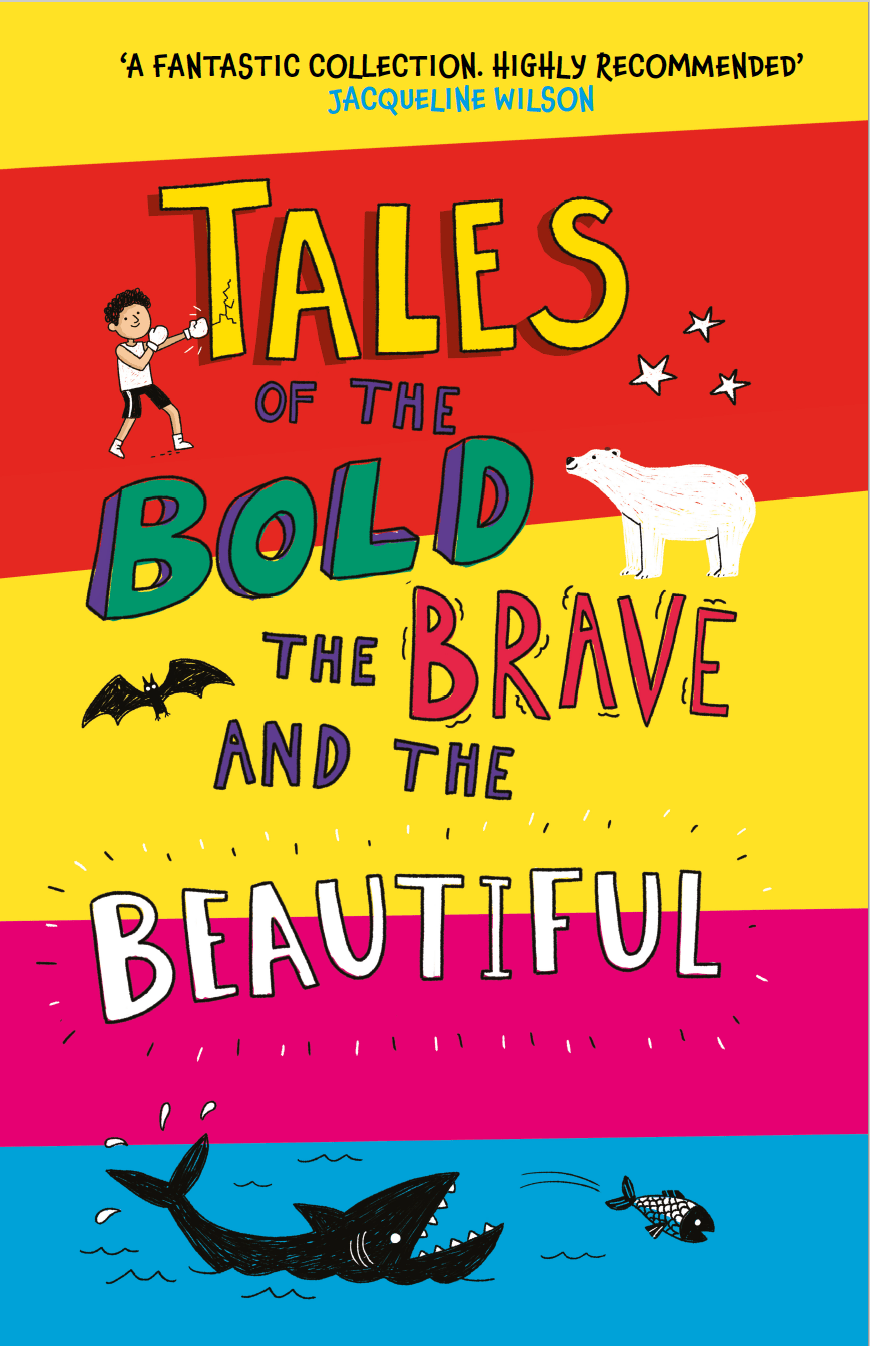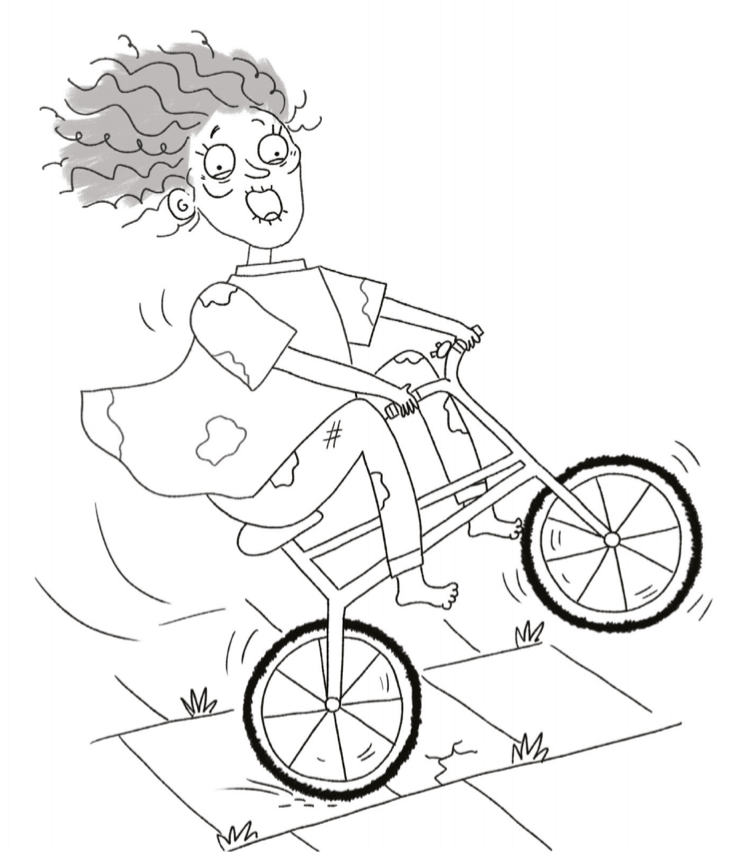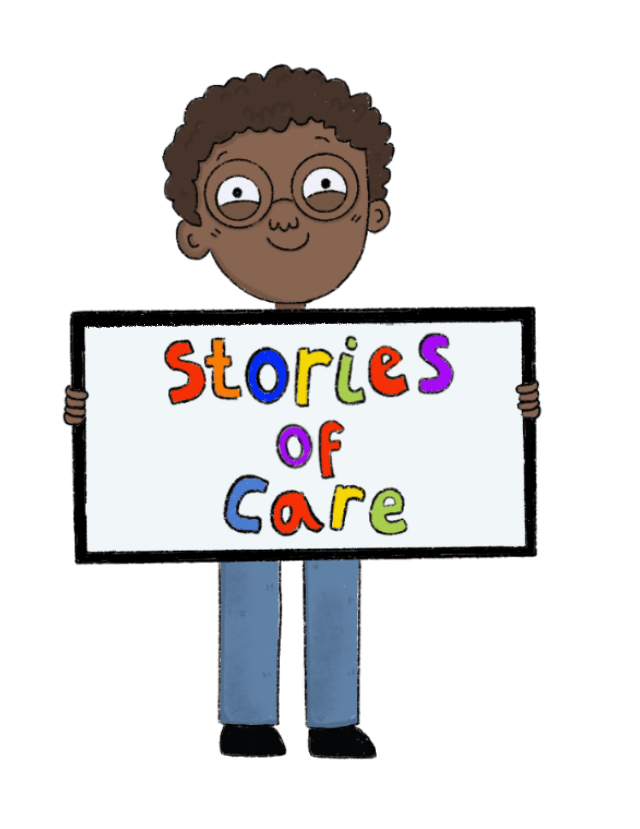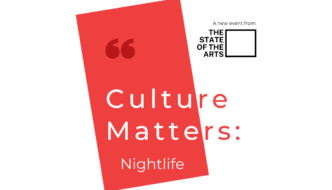
Think about your favourite books when you were a kid. How similar were the characters to you?
The book that I used to stay up late, under the covers, with a torch to read was My Naughty Little Sister by Dorothy Edwards, a set of light-hearted tales about a precocious toddler. Now, I didn’t have a little sister and I definitely wasn’t the naughty one in our family, but they depicted the sort of middle-class family which I saw myself in. Like it or not, we’re often drawn to stories about people we see ourselves in. I wonder, would those same stories have resonated as well with kids from backgrounds different to mine? If not, where are their safe, familiar spaces, and are there enough people writing them?
Stories Of Care, a Manchester-based initiative, is addressing this issue head on. It was founded by writer and comedian Sophie Willan, whose BBC2 sitcom Alma’s Not Normal (for which she just won a BAFTA) was based on her own experience of growing up in the care system. This week will see the launch of Stories of Care’s second anthology of short stories for children, Tales of the Bold, the Brave and the Beautiful. This anthology is the culmination of an 18-month development programme designed specifically to coach and inspire other young writers who have had ‘not normal’ backgrounds; those who have experienced care, or are from low-income, single-parent or non-traditional families.
Oliver Sykes , the lead artist for the project and a former theatre producer, found he had a natural talent for writing, specifically about the experience of kids from single-parent families. He is the recipient of numerous writing awards as well as being shortlisted for Penguin’s WriteNow programme and now mentors other young writers.
Oliver didn’t have it easy as a kid. Being one of six, he grew up on a council estate in rural Derbyshire and his mother left home when he was eight. He tells me money was tight, painting a vivid picture of sharing a room with his three brothers, saying: ‘we were close physically as well as emotionally’ – as well as how he and his siblings, ‘a little platoon’, went out with his dad to shoot rabbits for tea. Despite the financial hardship, he speaks fondly of his childhood and explains how his dad was the one who got him into books.
‘He was an amazing dad, and he instilled in us this sort of desire to educate ourselves and to improve upon the hand life gave us. I think that’s where my love of reading comes from, my dad. I can remember sitting down with him reading the classics like Treasure Island and Robinson Crusoe,’ says Oliver.
‘Danny the Champion of the World [by Roald Dahl] was the first time I remember finding a character being raised by his dad in a single parent family and really seeing myself represented on the page. That was a pivotal moment. I just don’t see that represented that much, which is why I’m hoping to make some waves with Alfie’s First Fight.’
Alfie’s First Fight is the final story in the new anthology, and it’s a goody. I won’t give too much away, but it’s an action-packed caper that captures all the atmosphere of a boxing match and has you rooting for little Alfie, the underdog, from the get go.
‘It’s also a human story of a boy struggling to come to terms with the loss of his mum,’ explains Oliver. ‘We all encounter loss in life and so there’s something universal about abandonment, grief, loss and those big, big emotions. The way Alfie deals with them is by realising that he can progress and move forward with the comfort and support of the family that are present in his life. Alfie’s also worried about money and losing his home, which makes it quite current, if you think about the cost of living increases, and the fact that people are really worried about energy prices and whether they can afford to have their radiators on. It doesn’t feel too far removed from what life was like for us growing up, to be honest.’
There’s multiple themes running through the anthology. From fishing for rainbows to magic mangoes, the ten authors showcase imagination by the bucket-load, complimented by punchy cartoon-style illustrations by Richard Watson. All the stories flow beautifully together and are perfect to read out loud to youngsters.
Cork!, for example, by Bróccán Tyzack-Carlin is a very funny, David Walliams-esque tale of a young lad whose lie about being an Irish folk singer snowballs out of control, including (my favourite part) having to force his brother to stay mute for a year to keep up the facade. It plays to our contemporary obsession with fame and celebrity, and ultimately has a very simple core message at its heart – that it’s usually better to tell the truth.

Illustration by Richard Watson: Nana’s Magic Medicine.
However, it’s not all jovial and some stories cover very serious themes. In Nana’s Magic Medicine, Libby Hall writes about a teenager’s anxiety when she finds a lump in her armpit. It’s brave and touching, and Libby explains how the programme helped provide the skills to address this kind of topic for a younger audience.
‘If I’m honest, I like writing about dark themes, and it was one of the things that put me off wanting to write for children in the past’ says Libby. ‘But I realised that children do experience these things. So of course you can write about them, you just need to write about it in a way that resonates with that audience. That’s been part of the process that I’ve really enjoyed, learning how to do that.’
Emmy Clarke navigates similarly serious issues in Vampire Hunter Jess, a heart-warming story of acceptance and friendship. This tale features a character with ADHD as well as a young girl battling with grief, and there are strong themes of acceptance, resilience and strength.
‘Kids do go through this stuff,’ says Emmy. ‘And they have questions about the darker sides of life, which deserve to be treated with a lot of care. In everything I wrote I tried to keep in mind an essence of hope. Because I think it’s important for kids to know that no matter how dark it gets, there is always hope and it will get easier. You’ll have a day where you’re laughing again.’
The anthology works in part due to the diversity of the authors themselves. As a programme aimed at writers from specific backgrounds, I was keen to understand whether they felt pigeon-holed by labels such as ‘working-class writer’.
‘I understand why people might be reluctant to embrace a label like that’ says Bróccán. ‘But I don’t have a problem with it. I think that your writing is always going to be informed by experience. And it’s not as if our experience as people from low-income, single parent or care backgrounds is homogenous. It’s really not. It’s all so different. And that makes for such a wealthy body of work.’

Illustration by Richard Watson: The Aftas
For Emmy, labels can be helpful. ‘I think every sort of label that I’ve put on myself and the way that I identify has absolutely touched every aspect of the way that I write. And having read everyone else’s work, there’s such an authenticity to the way that everyone has used their experience to write their stories. I think that’s really important for the kids that will read this book. Because they’ll be able to see a part of themselves on the page.’
The programme itself is being independently evaluated, but anecdotally it already seems to have hit the mark. When I asked the writers to sum up their experience in a few words, their reviews were glowing, with phrases such as ‘inspired, proud, engaged, empowering, enlightening, collaborative, motivating, heartening, and life-changing’. There’s also an ongoing commitment from Oliver and others to provide coaching, mentoring and support to further their careers. Bróccán is embarking on a tour of his comedy and poetry show, Turtle, Libby is writing plays and acting, and Emmy is doing readings as well as continuing to work on a fantasy novel. Oliver is also touring the stage show of Alfie’s First Fight at a number of libraries as well as at Manchester’s Z-arts.
And when it launches, he is keen that as many people read the book as possible. The anthology, published by Manchester Metropolitan University, will be available to buy but 2,000 free copies of the book will also be provided for free for children from care-experienced, low income and non-traditional families.
‘For Sophie and I, and for everybody in Stories Of Care who’ve become part of the organisation, it’s amazing to think that children who’ve grown up in care might open the book, and think ‘oh, that happened to me, these are stories for me’. And of course we also hope that the stories have universal appeal. I feel 100 per cent confident that they do, based on the strength of the storytelling.’
I’m pretty confident they will too. It’s an initiative that couldn’t be more timely, with a very productive outcome. The anthology would be a welcome addition to every kid’s bookshelf, but perhaps especially those who see themselves in its pages.
Tales of the Bold, the Brave and the Beautiful is out on 2 June, and can be pre-ordered now from the Stories Of Care website.
***
Follow our writer Meg Rowley here, on twitter.
Filed under: Written & Spoken Word
Tagged with: book, books, Care, family, low-income, manchester, mentors, non-traditional, programme, project, single-parent, stories, writers, writing, young




Comments